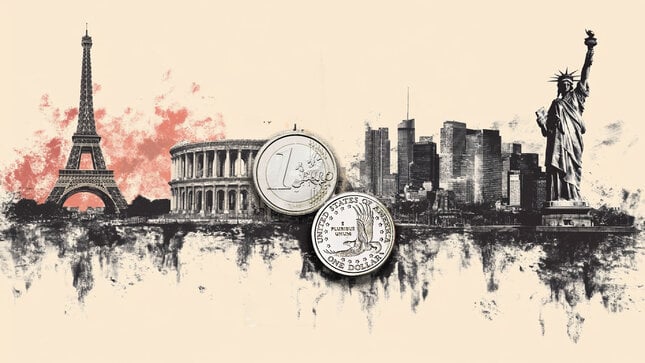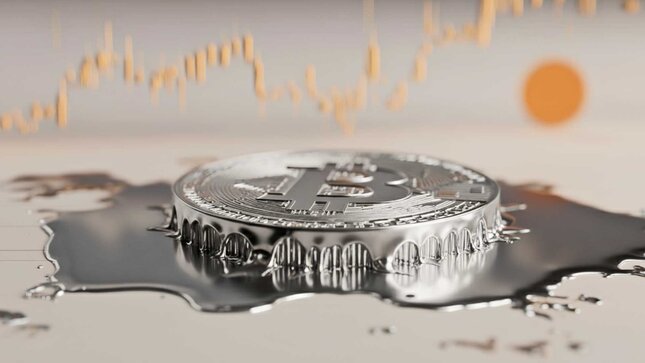Commodities have taken center stage, and why shouldn’t they? They’ve been on a roll as of late, with prices rising through the roof!
Just go to your local gas station. With crude oil prices slowly inching up, I can’t hit the nightly drag races with Big Pippin and Huck (yes, it’s Huck’s dirty little secret – she loves racing!). Also, if you were paying attention last year, then you’d know that gold also rocketed up the charts.
You might be thinking, “Okay, commodities are rising, so this should be good for the comdolls, right?”
That is true, my young padawan. But you shouldn’t just think comdolls when you hear commodities, you should also pay attention to how commodity prices affect inflation. As we all know, inflation plays a crucial role in how central banks make decisions on monetary policy.
Before I get to that, lemme first discuss how rising commodities affect countries in different ways. Some will have to deal with rising consumer prices more than others. Now, I hate to be the bearer of bad vibes, but chances are, if you live in a developing country, you’ll probably get the short end of the stick.
Commodities aren’t just those precious metals and liquids. They also include things like sugar and coffee beans, the basic ingredients for that 31-ounce cup of coffee you get daily from Starbucks. But what you don’t know is that when you buy that giant cup of java, only a very small portion of what you spend actually covers the price of the commodities (sugar, coffee beans, etc.) that went into your drink.
So what are you mostly paying for if not the basic ingredients? A huge chunk of what you pay actually goes to other things such as taxes, labor, and of course, the company’s PROFITS! This holds more truth in developed countries than anywhere else. You see, commodities only make up a small amount of the total cost of food in developed countries. So basically, if commodity prices rise, it tends to just have a small impact on the prices of food… in developed countries.
But this isn’t the case in emerging nations. Commodities comprise a larger portion of the total cost of food in emerging countries. In other words, food prices are more likely to mimic commodity prices.
Studies also show that consumers in developing countries also spend a greater percentage of their total income on food. So it’s likely that people living in fast-growing emerging countries will feel the added price pressures (a.k.a. INFLATION) more than those living in developed countries.
BabyPips.com does not warrant or guarantee the accuracy, timeliness or completeness to its service or information it provides. BabyPips.com does not give, whatsoever, warranties, expressed or implied, to the results to be obtained by using its services or information it provided. Users are trading at their own risk and BabyPips.com shall not be responsible under any circumstances for the consequences of such activities. Babypips.com and its affiliates will not, in any event, be liable to users or any third parties for any consequential damages, however arising, including but not limited to damages caused by negligence whether such damages were foreseen or unforeseen.
Editors’ Picks

EUR/USD: US Dollar comeback in the makes? Premium
The US Dollar (USD) stands victorious at the end of another week, with the EUR/USD pair trading near a four-week low of 1.1742, while the USD retains its strength despite some discouraging American data released at the end of the week.

Gold: Escalating geopolitical tensions help limit losses Premium
Gold (XAU/USD) struggled to make a decisive move in either direction this week as it quickly recovered above $5,000 after posting losses on Monday and Tuesday.

GBP/USD: Pound Sterling braces for more pain, as 200-day SMA tested Premium
The Pound Sterling (GBP) crashed to its lowest level in a month against the US Dollar (USD), as critical support levels were breached in a data-packed week.

Bitcoin: No recovery in sight
Bitcoin (BTC) price continues to trade within a range-bound zone, hovering around $67,000 at the time of writing on Friday, and falling slightly so far this week, with no signs of recovery.

US Dollar: Tariffed. Now What? Premium
The US Dollar (USD) reversed its previous week’s decline, managing to stage a meaningful rebound and retesting the area just above the 98.00 barrier when tracked by the US Dollar Index (DXY).
RECOMMENDED LESSONS
Making money in forex is easy if you know how the bankers trade!
I’m often mystified in my educational forex articles why so many traders struggle to make consistent money out of forex trading. The answer has more to do with what they don’t know than what they do know. After working in investment banks for 20 years many of which were as a Chief trader its second knowledge how to extract cash out of the market.
5 Forex News Events You Need To Know
In the fast moving world of currency markets where huge moves can seemingly come from nowhere, it is extremely important for new traders to learn about the various economic indicators and forex news events and releases that shape the markets. Indeed, quickly getting a handle on which data to look out for, what it means, and how to trade it can see new traders quickly become far more profitable and sets up the road to long term success.
Top 10 Chart Patterns Every Trader Should Know
Chart patterns are one of the most effective trading tools for a trader. They are pure price-action, and form on the basis of underlying buying and selling pressure. Chart patterns have a proven track-record, and traders use them to identify continuation or reversal signals, to open positions and identify price targets.
7 Ways to Avoid Forex Scams
The forex industry is recently seeing more and more scams. Here are 7 ways to avoid losing your money in such scams: Forex scams are becoming frequent. Michael Greenberg reports on luxurious expenses, including a submarine bought from the money taken from forex traders. Here’s another report of a forex fraud. So, how can we avoid falling in such forex scams?
What Are the 10 Fatal Mistakes Traders Make
Trading is exciting. Trading is hard. Trading is extremely hard. Some say that it takes more than 10,000 hours to master. Others believe that trading is the way to quick riches. They might be both wrong. What is important to know that no matter how experienced you are, mistakes will be part of the trading process.
The challenge: Timing the market and trader psychology
Successful trading often comes down to timing – entering and exiting trades at the right moments. Yet timing the market is notoriously difficult, largely because human psychology can derail even the best plans. Two powerful emotions in particular – fear and greed – tend to drive trading decisions off course.


